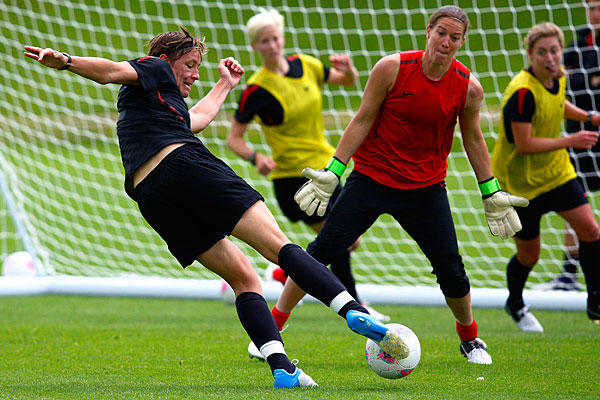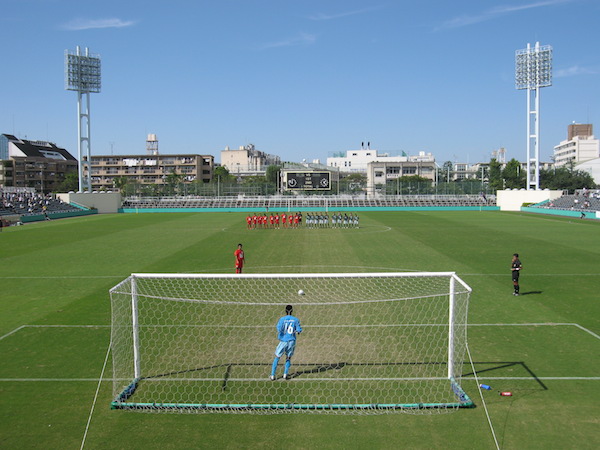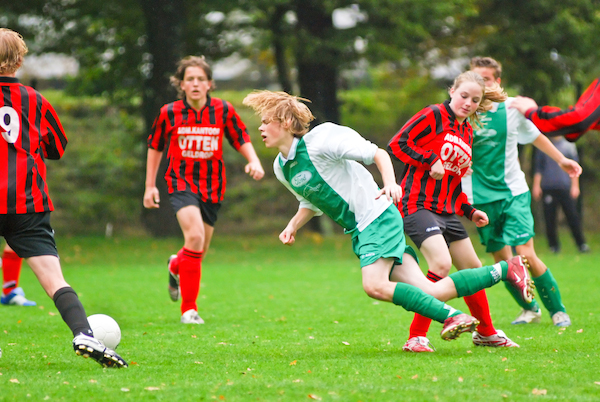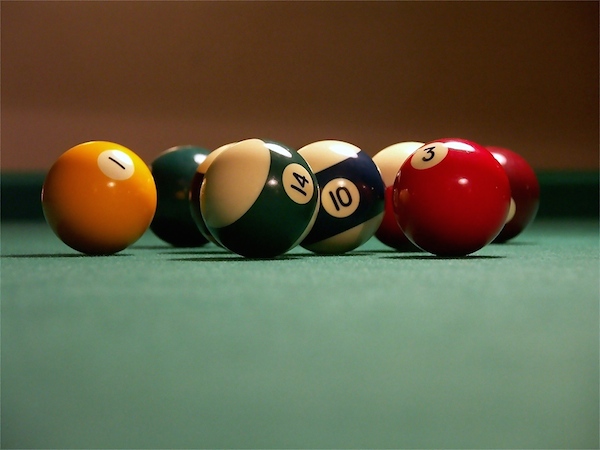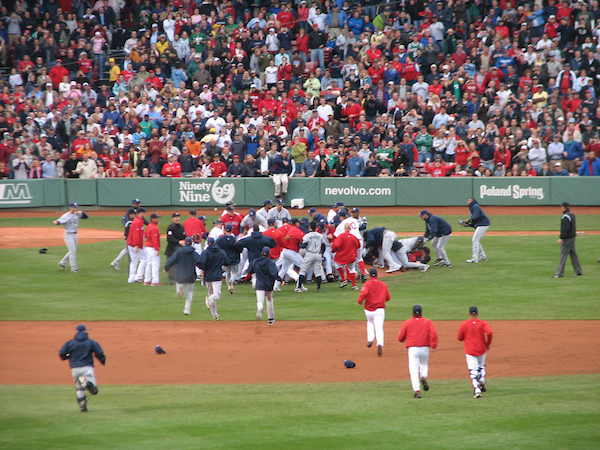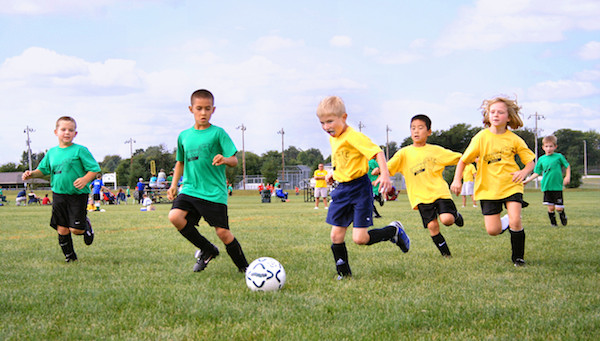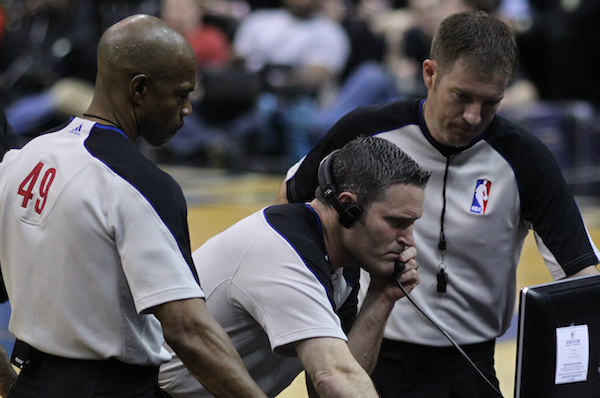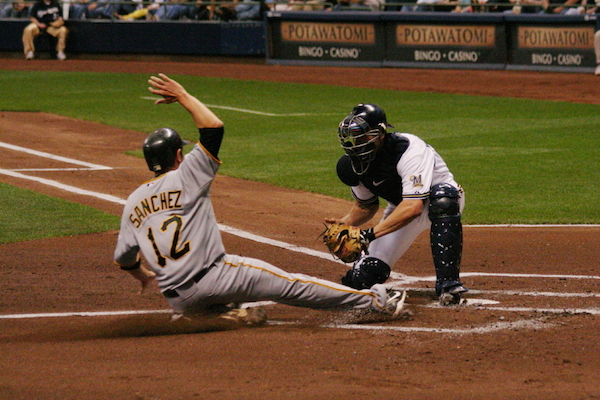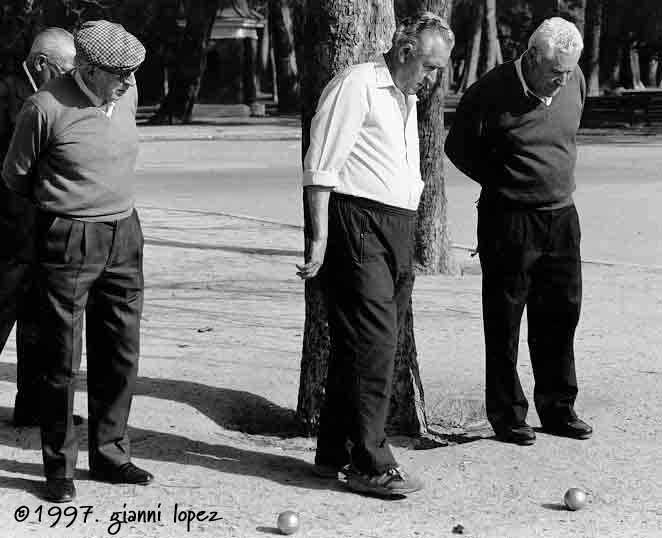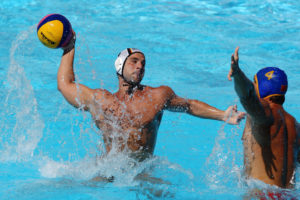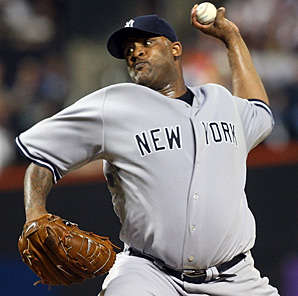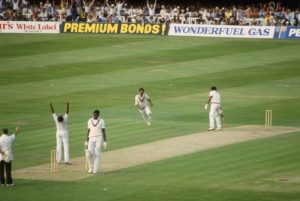Dear Sports Fan,
Why do I always hear about baseball games being delayed or rescheduled due to a light rain and yet soccer games continue around the world in a downpour?
Thanks,
Jesse
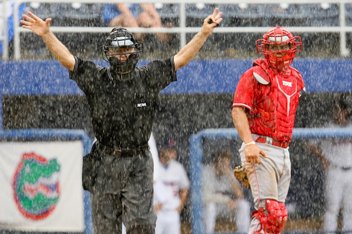
— — —
Dear Jesse,
Thanks for the question! It’s true that sports react differently to the elements. I’m tempted to try to explain this culturally. I’m not the biggest fan of baseball, so it would be fun to bash them for not playing in the rain. A more fair explanation would probably explain that weather affects the trajectory of balls and that this is much more dangerous with a small, hard ball traveling at 95 miles per hour than a big soft ball flying at 35 miles per hour. What is most interesting to me is trying to explain the general phenomenon of why some sports play through bad weather and others don’t and if possible, coming up with a rubric that explains why.
There seem to be two or three simple rules that we can abstract to to explain how each sport deals with weather.
- If the sport is played inside, there should almost never be a weather related delay.
- The harder the hardest substance used in normal game-play is, the less likely the sport will be to play through bad weather.
Let’s see how these work in practice.
Pro or College Basketball, Volleyball, Boxing, Hockey, Ping Pong — all played inside and all safe from weather delays.
Soccer, Football, Rugby, Cross Country Running — all played outdoors and the hardest material involved is no harder than a soft, inflated leather ball. Their surfaces are all grass or dirt. The only weather that will stop these games is a lightning storm in the direct area of the game.
Golf, Baseball, Tennis, Cricket — all played outdoors and the hardest material is significantly harder than leather. Golf has metal clubs and hard resin balls, baseball has wooden bats and hard leather balls, tennis is played on concrete with fiberglass rackets, and cricket has wooden bats and a hard leather ball.
These rules work pretty well to predict whether a sport will play through bad weather or not with only a few exceptions. You may have noticed that football is in the play through the weather category despite its helmets being much harder than an inflated leather ball. Two possible explanations for this are that historically the helmets were made of soft leather or that because the helmet is attached to the body, its danger is not modified by the weather. Of course if we allow the historic state of sports to enter into the equation, we’d have to admit that tennis used to be played only on grass and clay and that the rackets used to be made of wood. Then again, women’s tennis attire once “included a bustle and sometimes a fur” according to one history of tennis. Basketball’s treatment of weather is modified by its setting. If you are in an outside basketball league, played on concrete, games will be canceled if it is raining. Cycling admittedly breaks this rule entirely. They ride in the rain even though their bikes are made of fiberglass and the roads are made of road. I can only explain this by saying that cyclists are a little crazy and that no rule is perfect.
These rules should help you if you ever need to know whether your tickets to a sport are in danger of being rained out or if you decide to invent a new sport and want to set reasonable weather expectations.
Thanks for the question,
Ezra Fischer

